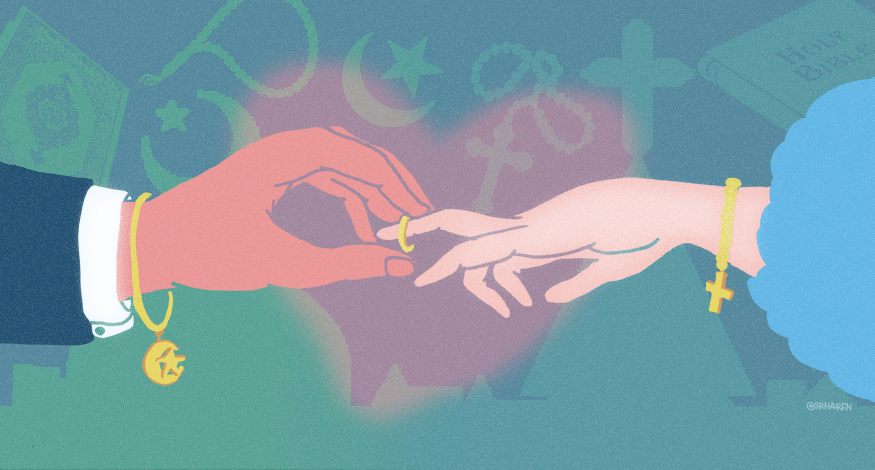We hear the word “tolerance” a lot, but do we really know its meaning and do we practice it?
I have always believed that I could be a fair person. I never want to discriminate others, nor do I want to live in an exclusive religious or ethnic bubble. I have always been an open-minded individual, eager to learn new things as I grow older. Unfortunately, I have to experience first-hand what I always try to avoid doing to others.
I am in a relationship with a Christian guy. When we first started this relationship, I did not question my future with him. My being a Muslim and his being a Christian do not change the fact that we are comfortable together. We are just like other couples, and whatever fights we have, they have nothing to do with our faiths. It’s not unusual for him to remind me to perform daily my prayers, and for me to tell him to go to church on Sunday.
But I have many friends who do not agree with us. I know that they are against my relationship with him. They would make remarks like “but you will have no ending with such a man,” or “don’t forget your religion,” or “do not convert (to Christianity),” or “find someone who is a Muslim, so you will have a future.”
It is common for them to assume I’m dating a Christian guy because of my lack of knowledge in my own religion and because I don’t practice it. They often remind me to perform salat, sometimes to the point of forcing me to. Whether jokingly or seriously, it makes me uncomfortable.
Read more: Rising Religious Conservatism, Intolerance Weaponized
My relationship with my religion and with God is for me and God alone. I do not need others to force it on me just because I am dating a non-Muslim. I resent their presumption that I will gradually forget my own religion.
I often feel neglected by my own community. I do not feel embraced, nor do I feel loved. Luckily, there are still those who embrace me and love me for my decision. They do not question me. They do not treat my situation as something foreign to them. I greatly respect them and would seek them for comfort and advice. Their kindness is a gift and in return, I do the same to them.
Every word a person says affects the other person who hears it. People should learn how to approach others without being offensive. Tolerance is important and an exclusive mindset is a threat to harmony.
Our religious differences have made me and my partner more tolerant of others outside of our communities. We understand a lot more by listening, seeing, and experiencing acts of discrimination around us. We learn from the way we are being treated. Our sensitivity grows stronger; we learn how not to talk about religion and ethnicity in an offensive way to others. We believe that giving space to others to observe their beliefs the way they see fit is important.
As for me, I now find myself straying away from people who excessively tell me to practice my religion “the right way,” because their right way is not necessarily my right way.







Comments